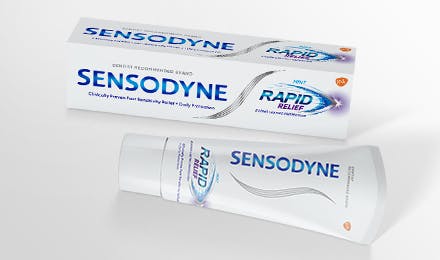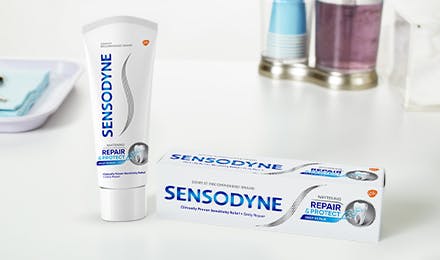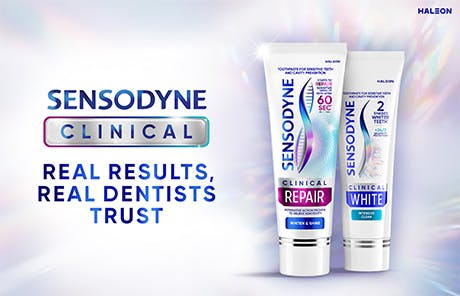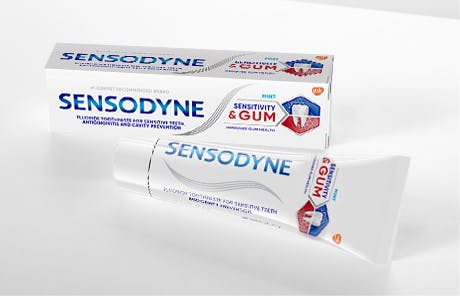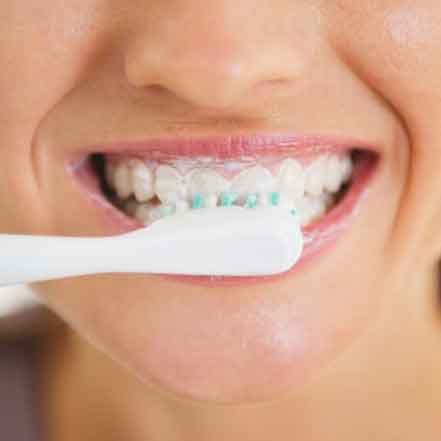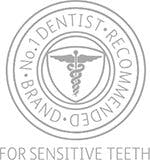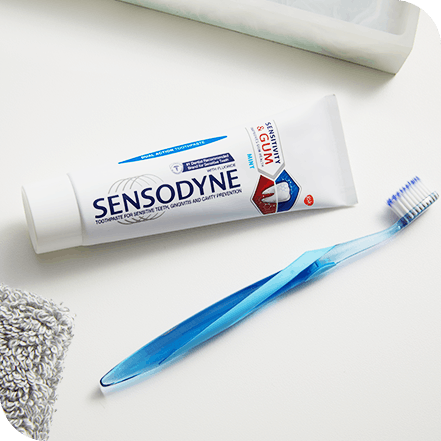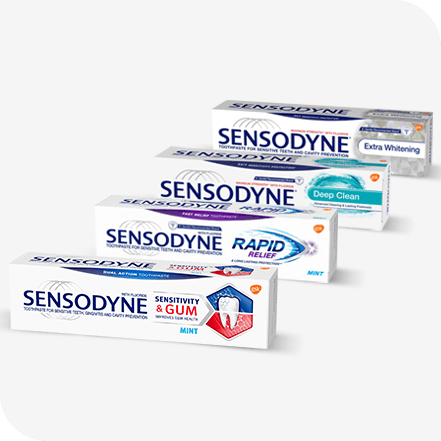How Sensory Sensitivities May Lead to Oral Health Issues

Sensory sensitivities can make everyday tasks feel overwhelming, and oral hygiene is no exception. For individuals who are sensitive to touch, taste, sound, or routine changes, brushing their teeth or visiting the dentist can trigger intense discomfort, leading to skipped care and long-term oral health problems. Learn how these two issues are connected and how to manage them to keep your teeth healthy.
Key Takeaways
- Individuals with sensory sensitivities may feel overwhelmed by a sensory experience, like brushing their teeth or visiting the dentist.
- They may avoid brushing their teeth or visiting a dental office for professional cleaning due to sensory aversions and anxiety, which can lead to oral health issues like gum disease and tooth decay.
- Individuals should seek inclusive dental care and find ways to maintain healthy teeth and gums at home.
What Are Sensory Sensitivities?
Sensory processing disorders (SPD) affect how the brain processes sensory information.1 When presented with certain sensory experiences like sounds or touch, a person with SPD may be overwhelmed or under-responsive to what’s happening around them.1
Symptoms of Sensory Sensitivities
Sensory sensitivities may present themselves via a range of symptoms wholly dependent on the individual, which may include:1
- Feeling discomfort in certain types of clothing and fabric
- Gagging when eating certain food textures
- Reacting to sudden movements, touches, noises and/or lights
- Frequently bumping into things
- Difficulty using fine motor skills
- Needing to frequently touch things
- Not acknowledging personal space
What Is Sensory Overload?
Sensory overload is a term to describe a sense of being overwhelmed by a sensory experience, like strong perfume or too many loud noises at once.3 While sensory sensitivity looks different for everyone, it can make even daily activities extremely difficult and can be amplified in high-sensory environments. This is true for many people and can be especially pronounced for neurodivergent individuals or for those with certain disabilities or conditions (for example, brain trauma).
When input from the senses feels overwhelming, it can trigger a physiological response from your sympathetic nervous system, which is responsible for the “fight or flight” response.3
Some common physical and emotional reactions to sensory overload may include:3
- Anxiety.
- Tightness in your chest.
- Shaking or trembling.
- Nearly paralyzing confusion.
- Racing or intrusive thoughts.
- Inability to focus.
- Irritability.
- Dizziness.
- Sweating.
Once sensory overload is triggered, it may snowball and may even lead to panic attacks.3
Sensory Sensitivities and Oral Health Challenges at Home
The act of brushing your teeth can be a very big deal to someone with sensory sensitivity.4 A sensory sensitivity can mean that an individual may be triggered by:4
- The pressure of a toothbrush against their gums or sensation of a toothbrush in their mouth
- The taste, smell or texture of toothpaste
- The sound or vibrations of an electric toothbrush
An aversion to toothbrushing can develop quickly, which can have dire effects on a person’s oral health.4
What Happens If You Don’t Brush Your Teeth?
If you don’t practice good oral hygiene, you may experience dental infections, decay, cavities and gum disease:5
- Unlike other tissues in the body, enamel cannot regenerate once it has been destroyed. Damage from decay and disease can inflict permanent damage.
- Neglecting oral health can allow tooth decay to progress inward, affecting inner layers of the teeth and resulting in severe pain that may lead to root canals or extractions.
- Gum disease can progress without noticeable symptoms until serious conditions like abscesses occur.
- Untreated gum disease can damage the gums and supporting structures around your teeth, eventually leading to loose teeth or tooth loss.
Sensory Sensitivities at a Dental Office
Those with sensory needs may have anxiety about visiting a dental office for a professional cleaning.7 Someone who might experience sensory overload in a professional dental setting may show some of these signs:6
- Significant sensitivity to teeth cleaning by the hygienist
- Strong reactions to moving backwards in the dental chair
- Difficulty tolerating the overhead lighting
- Strong responses to the noises of the dental equipment
- Strong reactions to unexpected office noises, like intercoms, door alarms, or beeps
- Extreme dislike of the polishing paste due to the texture and/or taste
- Significant sensitivity to smells
- Strong gag reactions to dental tools, x-ray materials or the feel of the glove materials
Those with sensory sensitivities who are aware of their reactions to certain stimuli may develop dental anxiety.7 If you have a sensory sensitivity, find out how to talk to your dentist about it to feel more comfortable at your appointment.
What Is Dental Anxiety?
Anxiety that’s associated with the thought of visiting the dentist for preventive care and other dental procedures is referred to as dental anxiety and is the fifth most common cause of anxiety.7
Anxiety is often closely linked to thoughts or memories of a painful or uncomfortable stimulus and increased pain perception.7 Dental anxiety, specifically, can arise from a prior negative or traumatic experience, especially if the root cause happened during childhood.7
It can also be provoked by sensory triggers such as sights of needles and air-turbine hand-pieces, sounds of drilling, the smell of products used during a procedure and sensations of high-frequency vibrations in the dental setting.6 Others may have anxiety around choking or gagging and experience a sense of helplessness or lack of control in a dental setting that contributes to their discomfort.7
Anxiety contributes significantly to avoiding professional dental care.7
What Happens If You Don’t Go to the Dentist?
Those with sensory sensitivities who are anxious about visiting the dentist may skip visits altogether.7 This behavior ultimately results in poor oral health, with more missing or decayed teeth, and periodontal disease.7
What ends up happening is an unpleasant cycle where a person with sensory sensitivity visits a dental professional only when there is a dental emergency, which may require a treatment procedure that is viewed as both complicated and traumatic. This exacerbates and reinforces the initial anxiety, leading to more avoidance in the future.7
Managing Sensory Sensitivities and Caring for Your Teeth
Caring for your teeth at home and receiving professional dental care are important for the overall health of your teeth and gums. But this may be easier said than done for those with a sensory sensitivities who experience sensory overload.
Tips to Manage Sensory Sensitivities at the Dentist
Here are some ideas and tips to prioritize oral health while managing sensory needs at the dentist:
- Find compassionate care. Sensory accessible and inclusive care is available thanks to a partnership with Sensodyne’s Sensory Inclusion Initiative, launched in partnership with the American Dental Association and sensory accessibility nonprofit, KultureCity.
- Desensitization. Consider scheduling a short, introductory visit with your dentist to help you get comfortable with the space and equipment. Use this time to explain your sensory preferences and explore ways to make future visits more manageable.
- Relaxation techniques. Try a relaxation technique like progressive muscular relaxation prior to visiting a dental office or brushing your teeth.7 Tense specific muscle groups for about 5 seconds, then relax them for 20 seconds and spend time recognizing the difference in how your body feels.7
- Diaphragmatic breathing. This relaxed form of breathing can reduce tension in the chest while delivering more air to your body.7
It’s also a good idea to ask your dental professional for tips on how to manage your sensory sensitivities at home.
Tips to Manage Sensory Sensitivities at Home
For some, occupational therapy may be the answer for caring for your teeth and gums.1 Working with a professional can help you discover tools and strategies for managing how you react to your triggers, like the feel of a toothbrush or the taste of mint toothpaste.1 You’ll learn to interact with your senses without experiencing sensory overload and you’ll get coping skills that are tailored to your needs.1
When it comes to caring for your teeth at home, you’re in charge. You can choose your soft-bristled toothbrush and toothpaste. If a manual toothbrush causes you to have an unpleasant reaction, try an electric one.
Whatever you and your dental professional decide, make sure that you’re brushing twice a day—ideally for two minutes each time—with a fluoride toothpaste, like Sensodyne.
Source Citations:
- Sensory Processing Disorder (SPD). Cleveland Clinic. https://my.clevelandclinic.org/health/diseases/sensory-processing-disorder-spd. Accessed 7/14/25.
- Understanding the Sensory Integration Process. STAR Institute for Sensory Processing. https://sensoryhealth.org/basic/understanding-sensory-integration-process. Accessed 7/14/25.
- Sensory Overload. Cleveland Clinic. https://health.clevelandclinic.org/sensory-overload. Accessed 7/14/25.
- Autistic Children and Teeth Brushing: Expert Tips. They Are the Future. https://www.theyarethefuture.co.uk/autistic-children-teeth-brushing/. Accessed 7/14/25.
- Microbiology of Dental Decay and Periodontal Disease. Medical Microbiology. https://www.ncbi.nlm.nih.gov/books/NBK8259/. Accessed 7/14/2025.
- Going to the Dentist. STAR Institute. https://sensoryhealth.org/basic/going-to-dentist. Accessed 7/14/25.
- Strategies to manage patients with dental anxiety and dental phobia: literature review. National Library of Medicine. https://pmc.ncbi.nlm.nih.gov/articles/PMC4790493/. Accessed 7/14/25.


